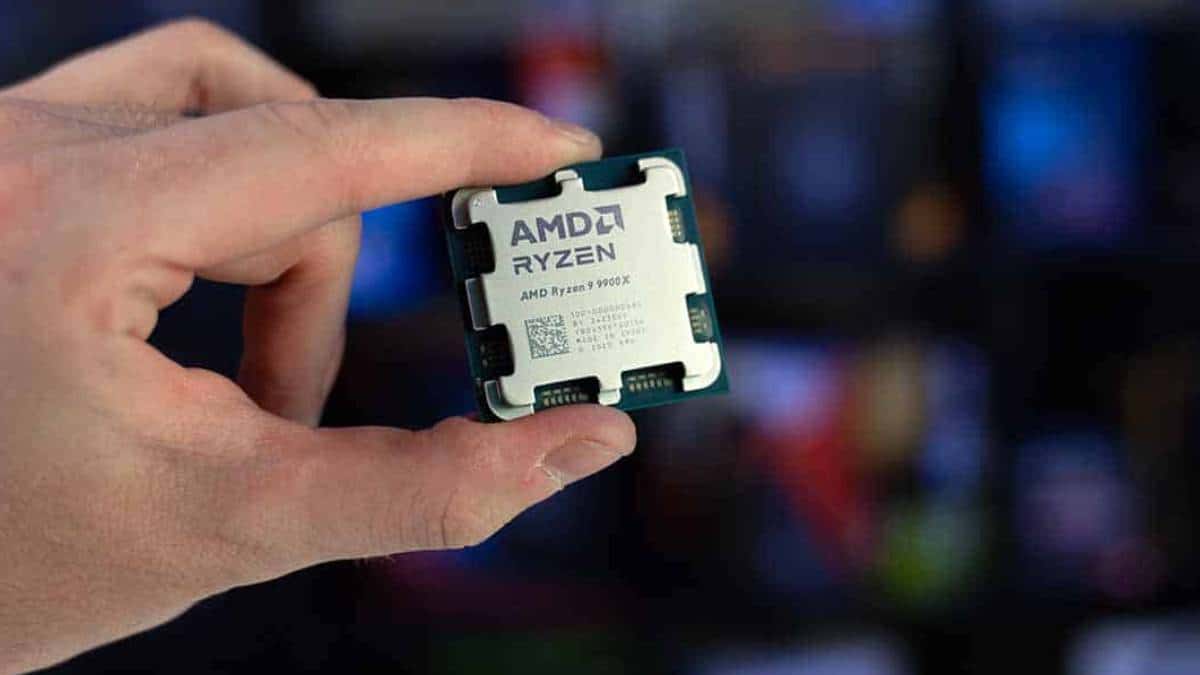We tested Core Parking on the Ryzen 9 9900X and actually got worse performance

Table of Contents
It’s safe to say that AMD’s Ryzen 9000 series launch hasn’t gone exactly to plan. A remedy to lackluster performance has been officially suggested in the form of Core Parking, and we’ve been busy testing it. Much like the previous-gen 7950X3D and 7900X3D, AMD recommended that Core Parking should be enabled for the new 9950X and 9900X processors, but we put the 9900X to work in our testing lab and weren’t too happy with the results.
Core Parking on/off compared with the 9900X
We used the 9900X to test with a Park ratio of 50% (the extreme end of Core Parking) to see if we saw a substantial uptick in single-core performance, and the answer was a resounding no. Below, you can find benchmark scores across various tools and games, with Core Parking enabled and disabled.
Prime Day is finally here! Find all the biggest tech and PC deals below.
- Sapphire 11348-03-20G Pulse AMD Radeon™ RX 9070 XT Was $779 Now $739
- AMD Ryzen 7 7800X3D 8-Core, 16-Thread Desktop Processor Was $449 Now $341
- ASUS RTX™ 5060 OC Edition Graphics Card Was $379 Now $339
- LG 77-Inch Class OLED evo AI 4K C5 Series Smart TV Was $3,696 Now $2,796
- Intel® Core™ i7-14700K New Gaming Desktop Was $320.99 Now $274
- Lexar 2TB NM1090 w/HeatSink SSD PCIe Gen5x4 NVMe M.2 Was $281.97 Now $214.98
- Apple Watch Series 10 GPS + Cellular 42mm case Smartwatch Was $499.99 Now $379.99
- ASUS ROG Strix G16 (2025) 16" FHD, RTX 5060 gaming laptop Was $1,499.99 Now $1,274.99
- Apple iPad mini (A17 Pro): Apple Intelligence Was $499.99 Now $379.99
*Prices and savings subject to change. Click through to get the current prices.
Synthetic benchmarks
| Benchmark | Core Parking off | Core Parking 50% |
|---|---|---|
| CPU Z Single | 867 | 865 |
| CPU Z Multi | 12,773 | 12,774 |
| Cinebench R23 Single | 2,205 | 2,151 |
| Cinebench R23 Multi | 31,502 | 28,287 |
| Geekbench Single | 3,348 | 3,370 |
| Geekbench Multi | 20,524 | 20,393 |
| Blender render | Monster 200.72 SPM Junkshop 146.82 SPM Classroom 101.15 SPM | Monster 200.78 SPM Junkshop 146.52 SPM Classroom 100.86 SPM |
| 7-Zip Compression 32MB (10 passes) | 47.64 seconds | 46.92 seconds |
| Handbrake TOS 4K Fast 1080P encode | Speed 128.52 FPS AES Encode Time 02:19 | Speed 128.29 FPS AES Encode Time 02:19 |
In synthetic benchmarks, the 9900X performed much worse in multi-core when Core Parking was turned off. This is perhaps to be expected due to how the technique works, but very minimal gains in some single-core scores don’t make up for it. In summary, you’re much better off leaving Core Parking alone if you’ve just picked up the new 9900X, at least according to our in-house tests
Core Parking is supposed to pseudo-deactivate the CPU cores that aren’t in use, reducing CPU power draw and allowing the cores that are active the headroom to boost higher. We can see how this makes sense for X3D chips, but not for the 9900X and 9950X. We saw no uptick in single-core performance, and a significant downgrade in multi-threaded performance, so what gives?
If you want to see more 9900X benchmarks along with our thoughts on the new Zen 5 chip, see our full Ryzen 9 9900X review.

We suggest Core Parking for X3D CPUs only
AMD previously suggested using Core Parking for the Ryzen X3D models, and we think this feature should stay within that wheelhouse. It makes sense for the X3D models because of power and temperature limitations imposed on these processors as a result of their design stacked V-Cache. Popular models such as the 7800X3D or flagship 7950X3D are good examples.
Core Parking is supposed to ‘disable’ or as the term is used “park” CPU cores when they are not in use, spinning them down to practically nothing. This saves power and supposedly allows the active CPU cores to clock to their higher boost speeds more consistently. Again, makes sense for the X3D variants, but not with the 9900X – as our tests show.

